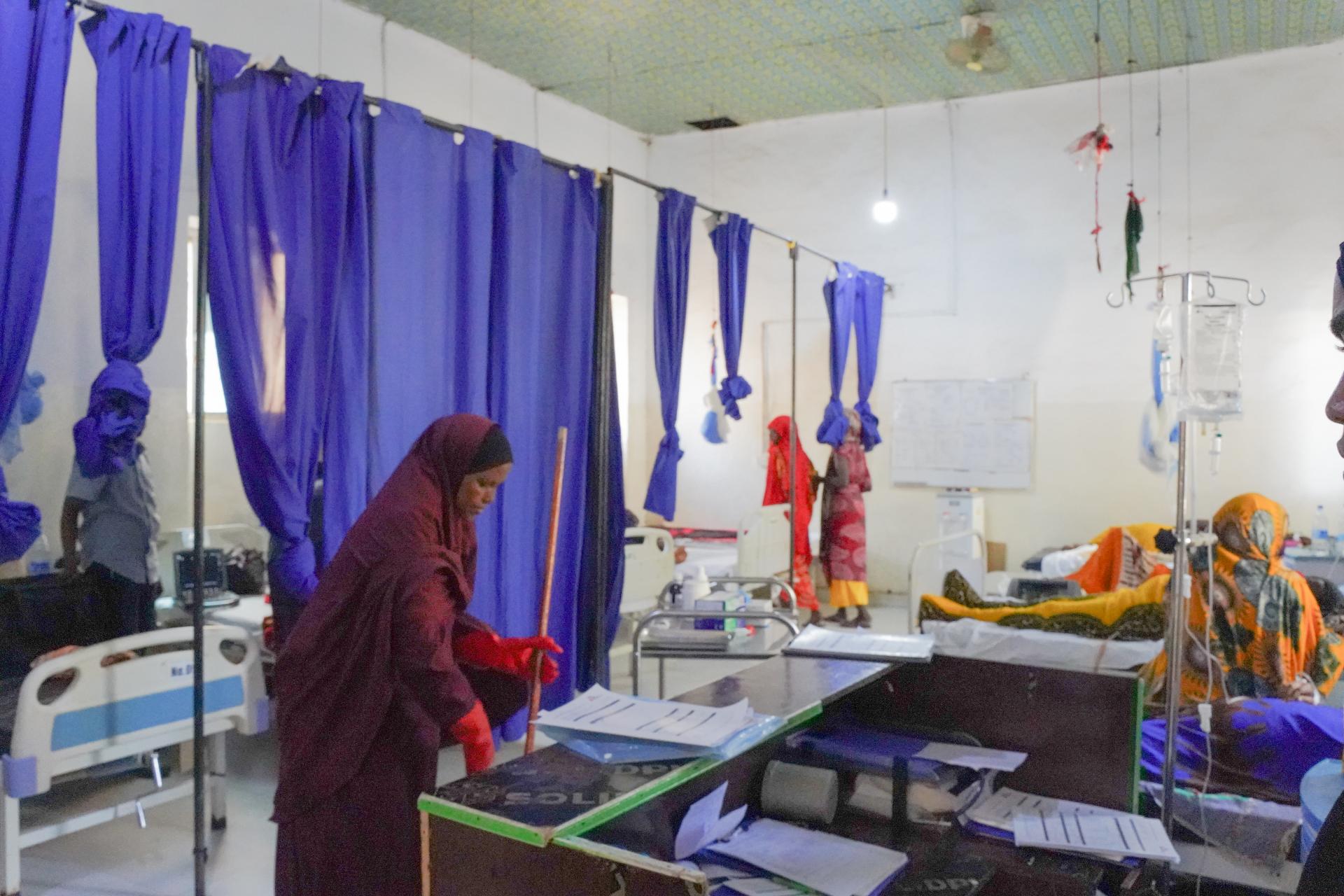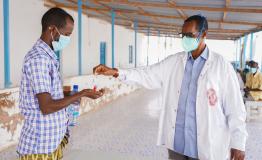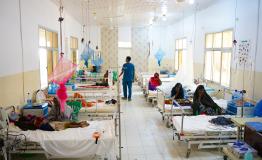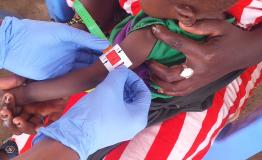“Baidoa has been a place where MSF worked for a long time. Today it is struggling with a large number of IDPs. There are about 1.1 million people in Baidoa and its surroundings. Of those, nearly 700,000 are IDPs and the conditions they are struggling with are profound”, said Dr Tammam Aloudat, president of MSF in the Netherlands.
Today an estimated four million people, or one in five of the population of Somalia, face emergency food insecurity, 3.8 million people are displaced from their homes, and 1.7 million children under five are acutely malnourished. The protracted humanitarian crisis behind these shocking figures is a result of ongoing conflict, climate-related disasters such as floods and droughts, recurrent outbreaks of infectious diseases and high levels of poverty.
In 2023, Somalia’s second city, Baidoa, suffered extreme climatic conditions, including the worst drought in 40 years and floods related to El-Niño – a climate phenomenon associated with extreme weather events. Baidoa large numbers of displaced people – around 740,000 of the city's one million inhabitants have been displaced from elsewhere in the country – and continues to receive new arrivals, with more than 27,049 displaced people arriving in Baidoa already this year. This has put a massive strain on the city’s already limited resources, particularly on water and sanitation services. As the rainy season approaches, the risks increase of outbreaks of waterborne diseases, including cholera outbreaks.
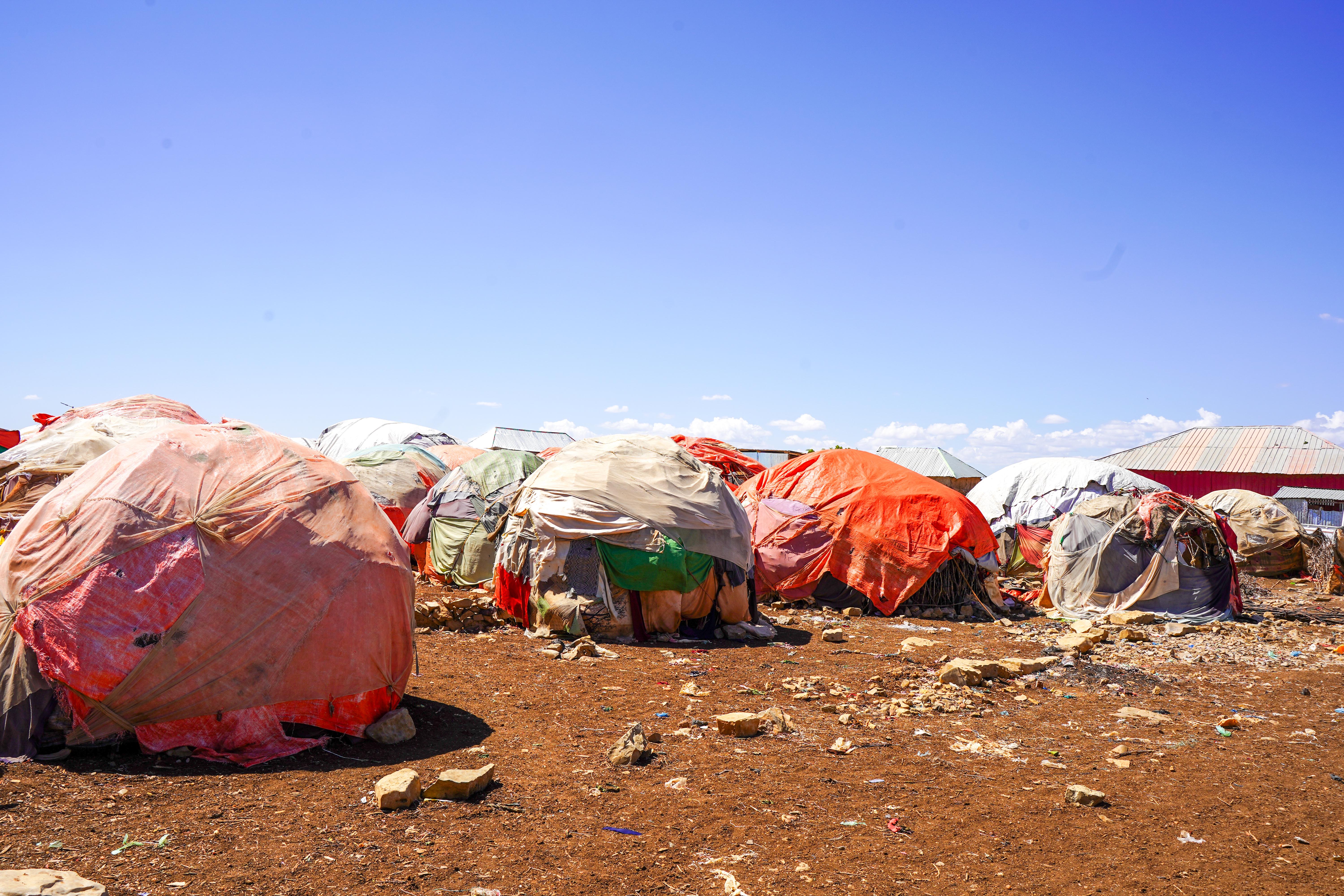
When they fall sick or need medical care, many displaced people in Baidoa struggle to reach a health facility. “My sister was having labour pains but I could not take her to hospital to get medical care,” says a 23-year-old woman living in a camp in Baidoa. “Our biggest challenges are travelling on roads made impassable by flooding and insecurity as well as the high cost of transport. We need better access to hospital through ambulance services and good roads.”
Maternal and infant mortality rates in Somalia are among the highest in the world, largely due to people’s limited access to medical care, exacerbated by droughts, floods and heightened conflict. Displaced women and children living in camps are particularly at risk. With only two hospitals in Baidoa catering to the growing number of displaced people, there is an urgent need to strengthen primary health services to enable pregnant women to access essential care, reduce late referrals and encourage women to give birth in medical facilities rather than in potentially unsafe conditions in their homes or shelters.
MSF has been supporting Bay regional hospital in Baidoa since May 2018 to address the healthcare needs of women and children, reduce infant and paediatric mortality, and prepare for potential disease outbreaks. MSF teams provide a range of medical services to mothers and children in the hospital as well as through community-based clinics and through vaccination campaigns targeting pregnant women and newborn babies.
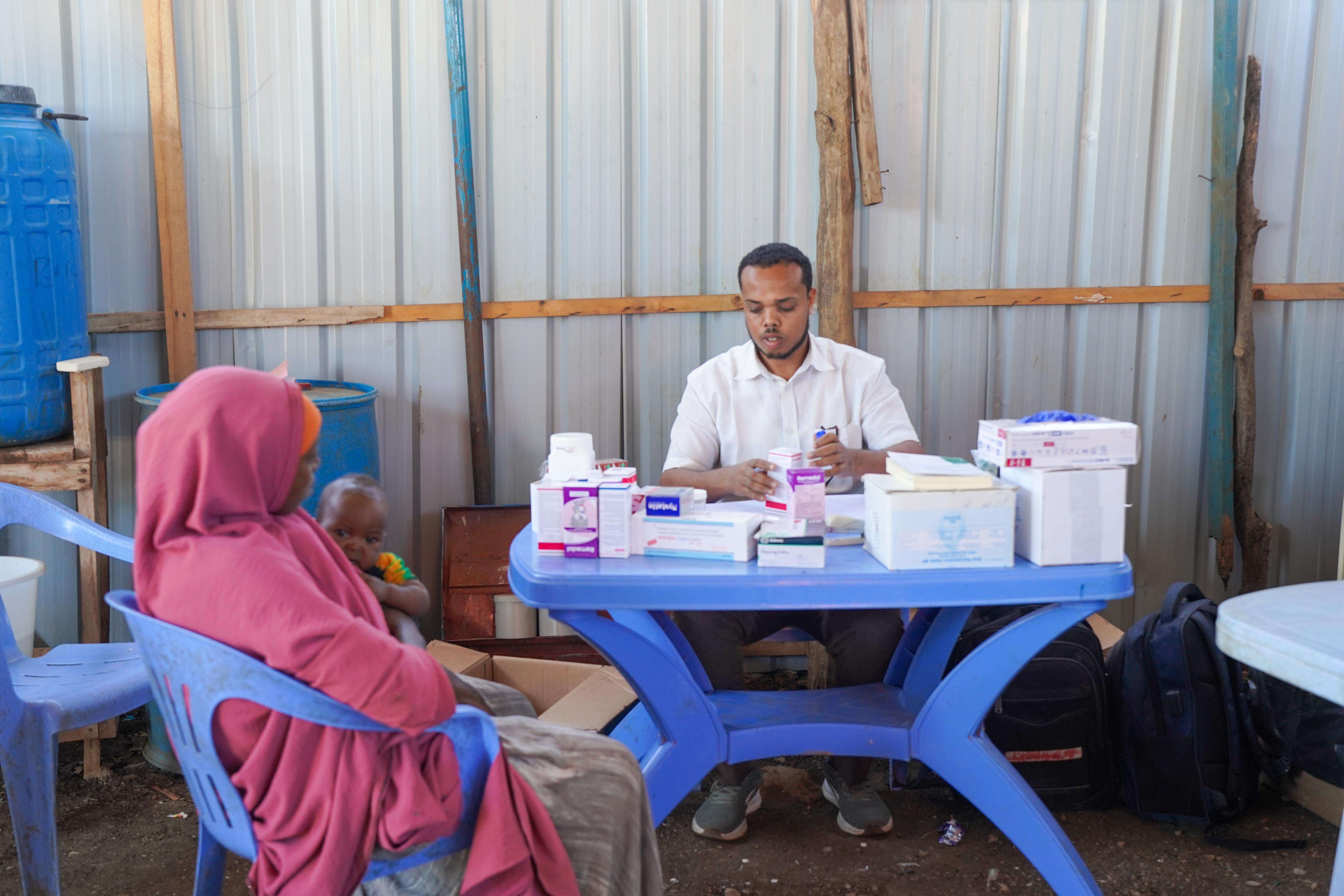
“We are making our services more efficient by building semi-permanent structures in seven outreach locations, where we are providing basic antenatal care, treatment for diarrhoea, respiratory tract infections and malaria, health promotion activities and referrals,” says MSF head of programmes Dr Pitchou Kayembe.
It is not only in Baidoa that health services are struggling. The humanitarian crisis and the rising numbers of displaced people are putting pressure countrywide on healthcare providers, including aid organisations. As well as increased patient numbers and growing costs, the provision of medical and humanitarian aid has been disrupted by insecurity.
“We urge all humanitarian organisations in Baidoa to work in a coordinated manner to address the unmet needs of displaced people in terms of food, shelter, clean water and access to healthcare, and to invest more in strengthening capacity to respond ahead of the upcoming rainy season,” adds Dr Kayembe.
According to UN-OCHA, 6.9 million people in Somalia need humanitarian assistance in 2024, including 5.2 million targeted for aid. The humanitarian response plan necessitates $1.6 billion in funding, currently experiencing a funding gap of $1.4 billion. The few humanitarian organisations in Southwest state of Somalia that are addressing the needs of displaced people lack funding and require better coordination to optimise the available resources.
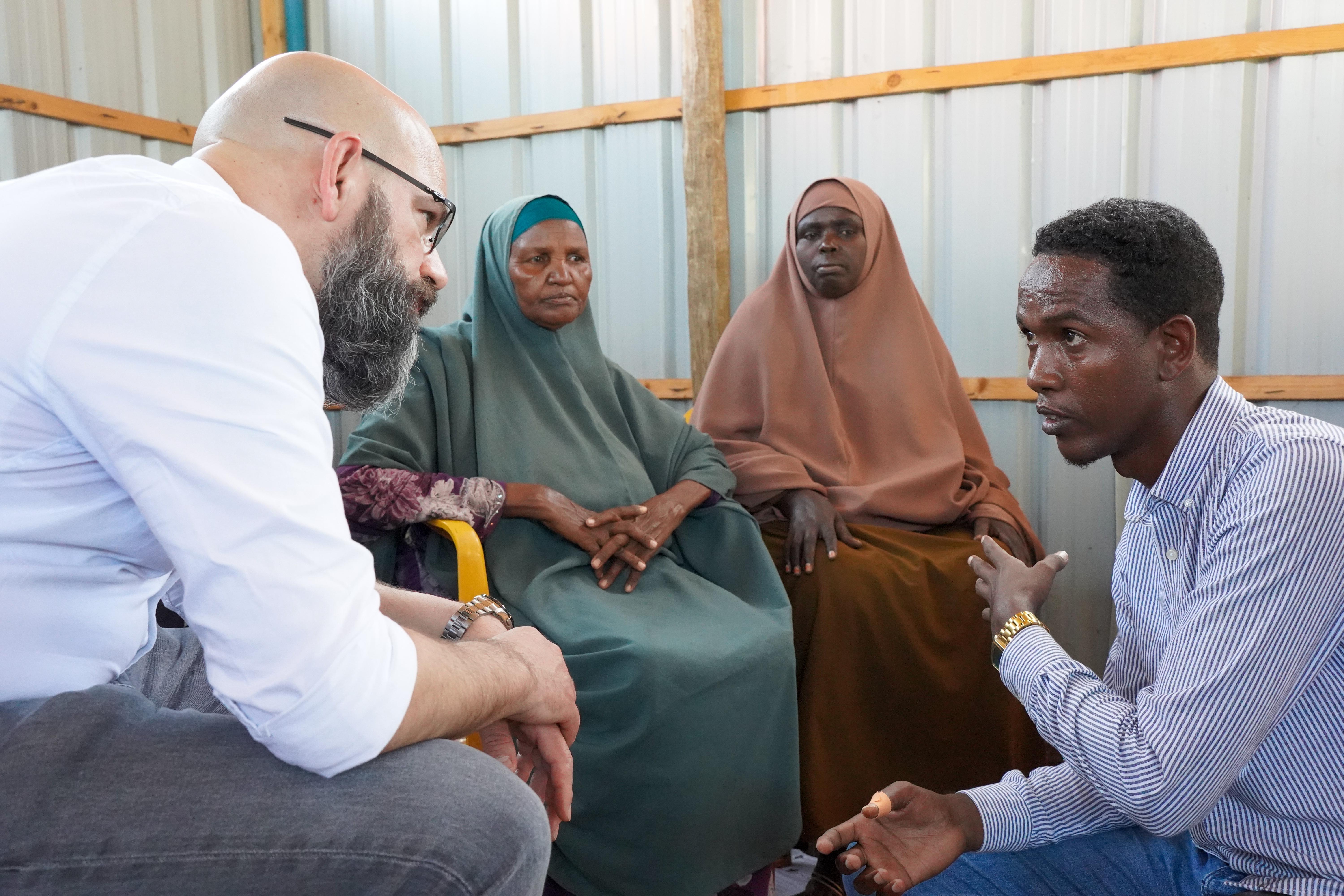
Despite cuts to humanitarian funding observed in Somalia, MSF remains committed to continuing its work in Somali region, with a focus on Southwest state, which has just one referral hospital and two general hospitals for the entire region.
“We are seeing lots of media coverage about emergencies like Gaza, Sudan and Ukraine, all of which are catastrophic and require humanitarian assistance and attention, but that must not come at the cost of less visible emergencies or continued protracted crises such as that in Somalia,” concluded the President of MSF, Dr Tammam Aloudat.
-----------------------------
Médecins Sans Frontières/Doctors Without Borders (MSF) is an international medical humanitarian organisation dedicated to providing medical assistance to populations in distress, including victims of natural and manmade disasters and armed conflict. For more than four decades, MSF has helped address the humanitarian and health needs of Somali communities. In 2023, MSF teams worked in Hargeisa, Sool, Galkacyo North, Galkacyo South, Baidoa and Dhobley, treating more than 2,000 children for malnutrition, treating 15,635 patients for acute watery diarrhoea and providing 204,531 outpatient consultations. Currently, MSF teams are actively engaged in responding to health needs in Galkacyo North, Galkacyo South and Baidoa.
